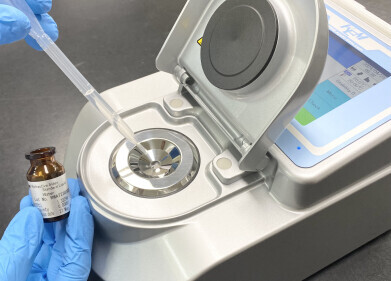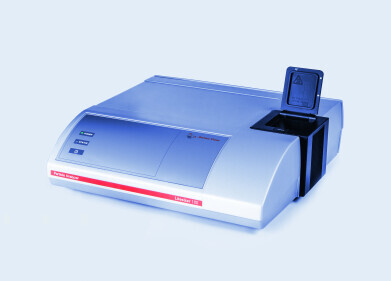Laboratory Products
How Can Robots Help in a Pandemic?
Apr 30 2020
While epidemiologists search for a vaccine for the novel COVID-19 virus, researchers at the University of California - San Diego are championing robots as an effective tool for managing the pandemic. In a medical setting, the team say robots can carry out critical clinical care tasks such as sanitisation and handling of contaminated waste. They also say robots can be used to monitor quarantine compliance within the community and help enforce social distancing rules.
Henrik Christensen, director of the Contextual Robotics Institute says robots are already being used for these tasks and could drive a new era of efficiency and safety within the healthcare sphere. "Already, we have seen robots being deployed for disinfection, delivering medications and food, measuring vital signs, and assisting border controls," read a report published in the journal Science Robotics.
Keeping humans safe with robotic surface disinfection
One of the most important areas identified by the team is surface disinfection, with humans at high risk due to the infectious nature of COVID-19 and its capacity to live on hard surfaces for up to three days. "For disease prevention, robot-controlled noncontact ultraviolet (UV) surface disinfection has already been used because COVID-19 spreads not only from person to person via close contact respiratory droplet transfer but also via contaminated surfaces," reads the report.
"Opportunities lie in intelligent navigation and detection of high-risk, high-touch areas, combined with other preventative measures," the researchers add. "New generations of large, small, micro-, and swarm robots that are able to continuously work and clean (i.e., not only removing dust but also truly sanitising/sterilising all surfaces) could be developed."
A new era of robot-to-human healthcare
Christensen also covets robots as a solution for maintaining everyday healthcare during the pandemic, saying "the deployment of social robots can present unique opportunities for continued social interactions and adherence to treatment regimes without fear of spreading more disease."
While there are challenges associated with robot-to-human social interactions, including an understanding of beliefs, values and emotions, the team are confident robots can be taught how to navigate these complex models. Moving forward, Christensen predicts robots could enjoy an exciting new role in the healthcare field.
"Overall, the impact of COVID-19 may drive sustained research in robotics to address risks of infectious diseases," reads the report. "COVID-19 may become the tipping point of how future organisations operate."
Scientists push for research and development
To move forward, Christensen says research and development is key. With the right approach, he predicts robots can not only be used to manage the COVID-19 pandemic, but also any future outbreaks.
From developing a vaccine to designing robots, laboratory equipment plays a critical role in healthcare advances. To find out more about the latest breakthrough don't miss 'Elemental Analysis for Pharmaceutical and Fine Chemical Manufacturing' with commentary from Peter Morgan on behalf of Elementar UK Ltd.
Digital Edition
Lab Asia 31.2 April 2024
April 2024
In This Edition Chromatography Articles - Approaches to troubleshooting an SPE method for the analysis of oligonucleotides (pt i) - High-precision liquid flow processes demand full fluidic c...
View all digital editions
Events
Apr 28 2024 Montreal, Quebec, Canada
May 05 2024 Seville, Spain
InformEx Zone at CPhl North America
May 07 2024 Pennsylvania, PA, USA
May 14 2024 Oklahoma City, OK, USA
May 15 2024 Birmingham, UK






.jpg)











